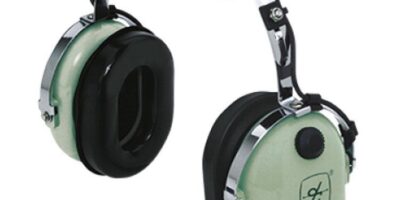Understanding the CSO AFOQT: A Comprehensive Guide
The Air Force Officer Qualifying Test (AFOQT) is a vital exam for anyone aspiring to become a commissioned officer in the United States Air Force. Specifically, the Combat Systems Officer (CSO) career field demands particular attention to certain components of this test. Let’s explore the role of a CSO, what’s on the AFOQT, and how to prepare effectively.
The Role of a Combat Systems Officer (CSO)
Combat Systems Officers were once called navigators. Their duties have expanded. A CSO manages mission planning, electronic warfare, and weapon systems. This role is crucial for mission success. They’re part of aircrew operating advanced technologies on various aircraft. Their skills ensure combat effectiveness and crew safety.
AFOQT Structure and Importance
The AFOQT evaluates prospective officers’ abilities across a range of subjects. Multiple subtests measure specific skills. Key areas include verbal and quantitative skills, spatial awareness, and aviation knowledge. The exam indicates potential success in officer training and future roles.
Subtests Explained
- Verbal Analogies: Determines understanding of word relationships.
- Arithmetic Reasoning: Tests mathematical problem-solving.
- Word Knowledge: Assesses vocabulary range.
- Math Knowledge: Measures fundamental mathematical knowledge.
- Instrument Comprehension: Evaluates understanding of aircraft instruments.
- Block Counting: Tests spatial proficiency.
- Aviation Information: Measures knowledge of aviation terms and concepts.
Each subtest contributes to different composite scores: Pilot, Navigator/CSO, Academic Aptitude, Verbal, and Quantitative. To qualify for a CSO position, the Navigator/CSO score is critical.
Preparing for the AFOQT with a Focus on CSO
Preparation is key to performing well on the AFOQT. Begin with a study plan months ahead of your test date. Focus on areas critical to the CSO role. Prioritize sections such as Instrument Comprehension and Block Counting, which directly correlate to the CSO composite score.
Effective Study Strategies
- Review Basic Math and Verbal Skills: Solid foundation in math and verbal areas is essential. Use practice books and online resources.
- Immerse in Aviation Contexts: For aviation-specific subtests, study aviation textbooks. Familiarize yourself with fundamental concepts.
- Practice Spatial Awareness: Engage in activities like puzzles to enhance spatial thinking.
- Simulate Test Conditions: Take full-length practice tests under timed conditions. This helps manage test anxiety and improves endurance.
- Track Your Progress: Periodically evaluate strengths and weaknesses. Adjust your study plan as needed based on these assessments.
CSO-Specific Considerations
The journey to becoming a CSO involves more than passing the AFOQT. Candidates should maintain excellent physical fitness and expect further evaluations. The Selection Board reviews your AFOQT results along with other factors such as academic records and leadership experiences.
Once selected, CSOs enter rigorous training programs. These include Undergraduate Navigator Training (UNT) or Undergraduate Combat Systems Officer Training (UCT). Here, candidates refine their technical skills and adapt to complex mission environments.
Insights from Successful CSOs
Current officers suggest balancing study with physical preparation. The CSO role demands both mental acuity and physical resilience. Networking with mentors already in the CSO role can offer valuable insights and real-world advice.
Community engagement and leadership experiences also contribute to overall candidate profiles. Seek out opportunities to demonstrate leadership skills. Consider participating in Air Force ROTC or Civil Air Patrol programs.
Conclusion: Your Next Steps
Understanding the CSO role and the AFOQT’s demands is vital. Prepare thoroughly and take advantage of available resources. A disciplined approach to studying and a commitment to the Air Force’s core values are essential. Good luck on your journey to joining the ranks of the United States Air Force Combat Systems Officers.
